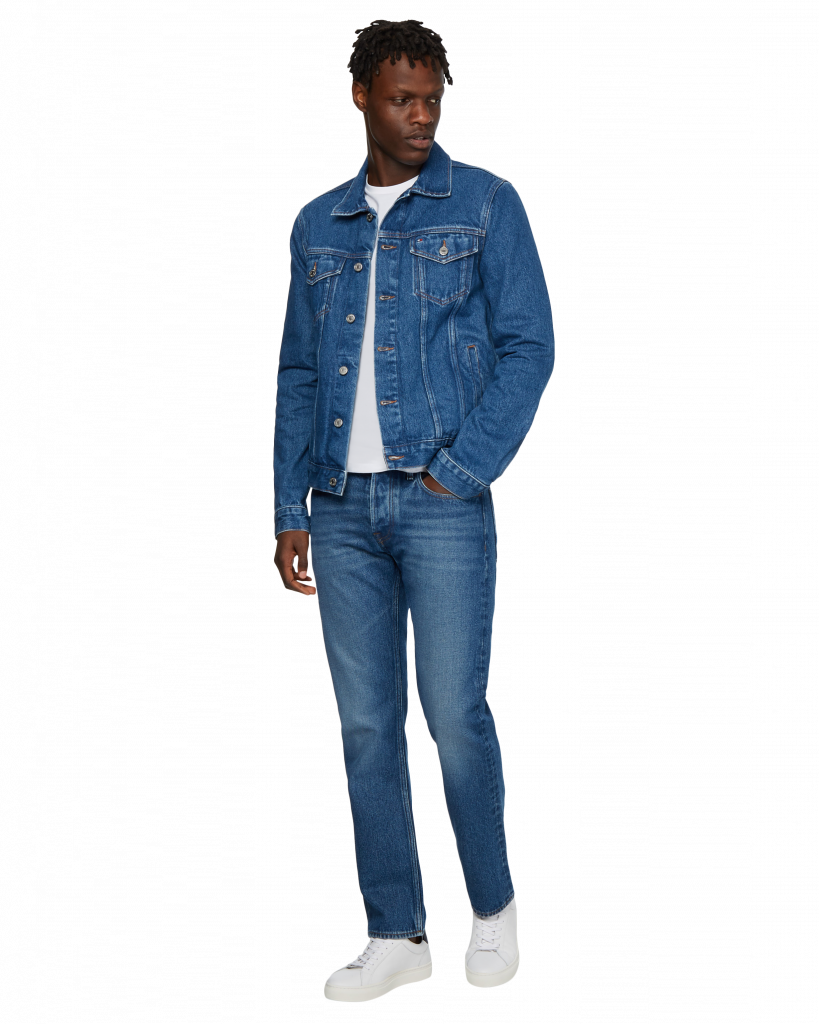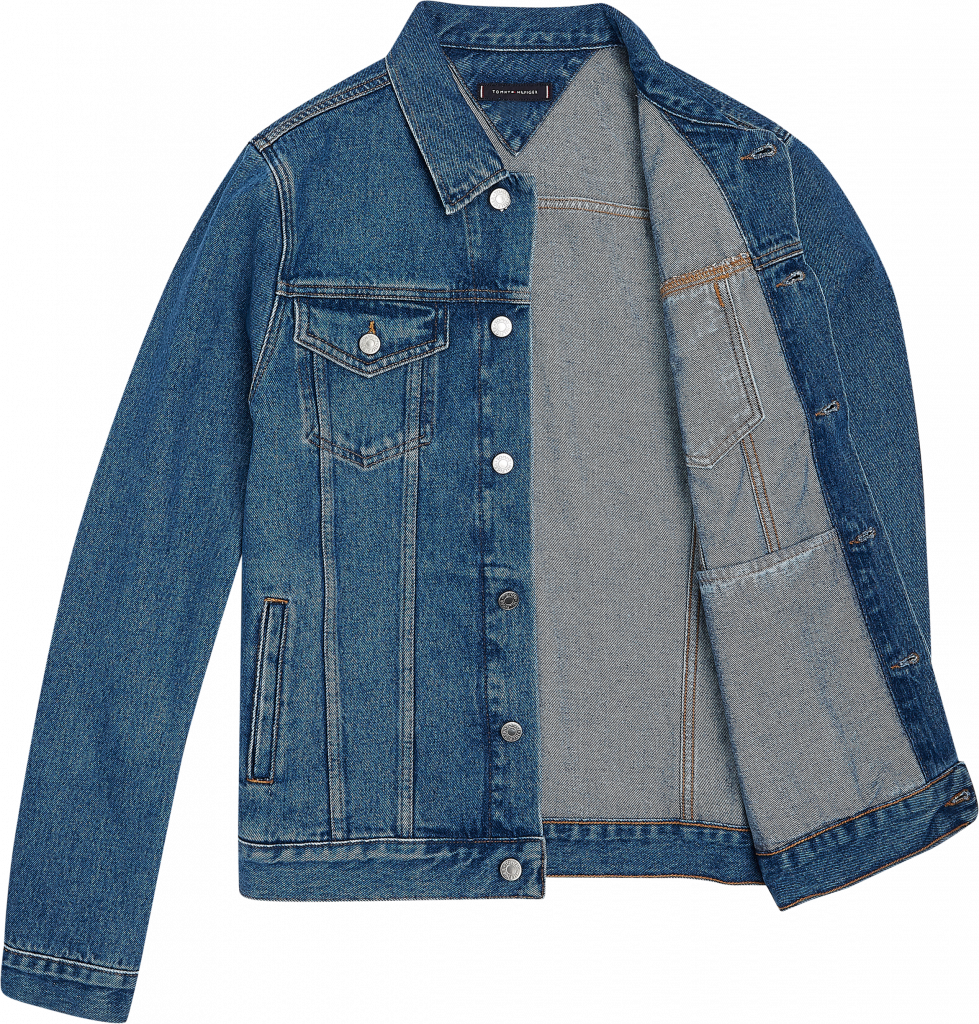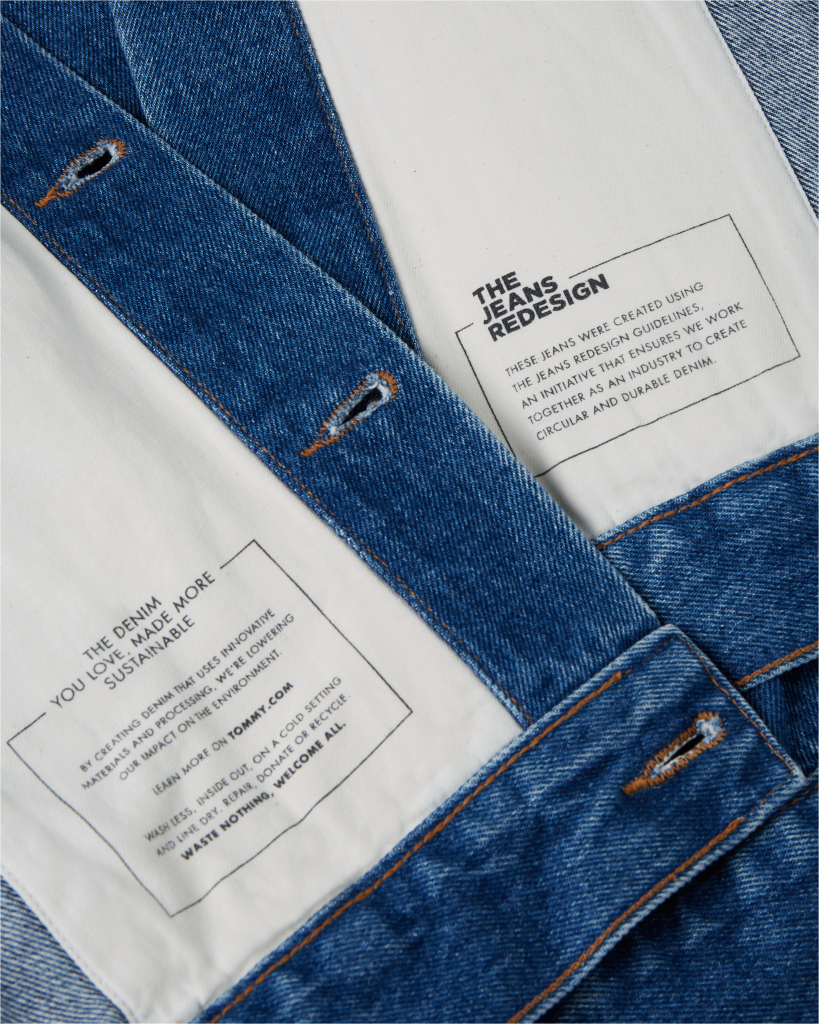TOMMY HILFIGER LAUNCHES FIRST CIRCULAR DENIM COLLECTION

Tommy Hilfiger has launched its first ‘Jeans Redesign’ garments made to be more durable and recyclable – two critical components in creating a circular economy.
Guided by the Ellen MacArthur Foundation’s Jeans Redesign project, the seven garments, including five pairs of jeans and two denim jackets, were made with durability, material health, recyclability, and traceability in mind. This was achieved by rethinking the design of the jeans according to circular principles, including using detachable buttons; the replacement of metal rivets with bar tacks; the removal of all metal zippers; removal of the leather patch; and use of 100 percent organic fabric. To increase durability of the products, each piece features wash and care instructions on the pockets, along with advice on how to repair, donate or recycle the product after use.
“Sustainability has become a driving force for our brand and our business,” said Martijn Hagman, CEO of Tommy Hilfiger Global. “As a leading fashion brand, we have a responsibility to drive the transition to a circular economy and we are proud to work alongside the Ellen MacArthur Foundation to achieve this. This shift requires a full rethink of the fashion value chain, and these pieces are a testament to the skill, expertise, and dedication of both teams as we continue to push the boundaries in both design and manufacturing. This is just one step on our path to creating fully circular products.”
“As a denim industry leader, and one of the first brands to sign up to Jeans Redesign, Tommy Hilfiger is demonstrating how we can all work together to redesign fashion’s future,” added Francois Souchet, Make Fashion Circular Lead at Ellen MacArthur Foundation. “The launch of this collection is an exciting step towards a circular economy for fashion where the clothes we love never become waste.”
The Jeans Redesign collection highlights Tommy Hilfiger’s on-going commitment to eliminate waste by innovating for circularity. To date, Tommy Hilfiger has trained more than 80 percent of its designers on circular design principles and recently launched Tommy for Life, its first circular business model. Under the Tommy for Life program, the company takes back items from customers and partners, cleans, repairs, and resells them, keeping products in use longer. Tommy Hilfiger is also driving transformative change in the denim industry, producing more than two million pieces of lower impact denim, which is finished through a process that uses less water and energy than traditional processes, and becoming the first major company in the denim market to use 100 percent recycled cotton at scale.












